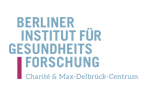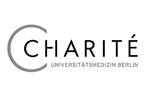In the context of current discussions on the improvement of medical innovation processes translational medical research (TMR) has evolved into a much-noticed approach. The explicit objective of TMR is a more efficient and effective translation “from bench to bedside”, which means from results of biomedical foundational research via clinical studies to new treatment strategies. The recourse to TMR is made against the backdrop of apparent weaknesses within the production and processing of medical scientific knowledge. Both in regard to the translation of biomedical insights into precise clinical study designs and the adjacent translation of these findings into patient-focused medical practices, a crisis of quality has been diagnosed.
Yet, what exactly is understood by TMR? Which core contents, organizational structures, processes, and objectives are connected to it? And how can translational practices be depicted as processes and validated as contributions of quality assurance? This project aims to analyse what is currently understood by and practiced as TMR. The focus lies first of all on the different economic, political and ethical dimensions of the term by which the scientific core contents of TMF are analysed with regard to their respective context. Furthermore, the organisational processes that implement TMR on site will be taken into account.


